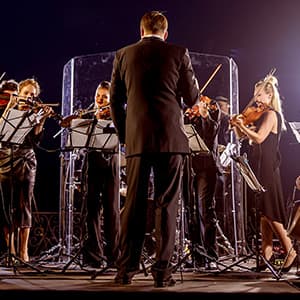

Beethovens Missa Solemnis Tickets
No Buyer Fees on Beethovens Missa Solemnis Tickets and Up to 30% Off Compared to Competitors. Learn More →
Select Location (e.g, New York)
- Oct 9, 2025THU•07:30 PMOct9thu07:30 PM - Boston Symphony Orchestra: Andris Nelsons - Beethoven's Missa SolemnisBoston Symphony Hall, Boston, MA●87 Tickets Left!
- Oct 10, 2025FRI•01:30 PMOct10fri01:30 PM - Boston Symphony Orchestra: Andris Nelsons - Beethoven's Missa SolemnisBoston Symphony Hall, Boston, MA●64 Tickets Left!
- Oct 11, 2025SAT•08:00 PMOct11sat08:00 PM - Boston Symphony Orchestra: Andris Nelsons - Beethoven's Missa SolemnisBoston Symphony Hall, Boston, MA●90 Tickets Left!
- Feb 20, 2026FRI•08:00 PMFeb20fri08:00 PM - Los Angeles Philharmonic: Gustavo Dudamel - Beethoven's Missa SolemnisWalt Disney Concert Hall, Los Angeles, CA●49 Tickets Left!
- Feb 21, 2026SAT•08:00 PMFeb21sat08:00 PM - Los Angeles Philharmonic: Gustavo Dudamel - Beethoven's Missa SolemnisWalt Disney Concert Hall, Los Angeles, CA●41 Tickets Left!
- Feb 22, 2026SUN•02:00 PMFeb22sun02:00 PM - Los Angeles Philharmonic: Gustavo Dudamel - Beethoven's Missa SolemnisWalt Disney Concert Hall, Los Angeles, CA●49 Tickets Left!
Frequently Asked Questions About Beethoven's Missa Solemnis Tickets and Events
What should I know about the seating arrangement for Beethoven's Missa Solemnis performances?
Seating arrangements can vary by venue, but generally, you can expect a mix of orchestra, balcony, and general admission seats. Checking the specific venue's seating chart can provide detailed information on available seating options.
What is the typical duration of Beethoven's Missa Solemnis performance?
The performance of Beethoven's Missa Solemnis typically lasts around 90 to 120 minutes, including intermissions, depending on the conductor and the specific interpretation.
What is the historical significance of Beethoven's Missa Solemnis?
Beethoven's Missa Solemnis is considered one of his most important works, reflecting his deep spiritual beliefs and showcasing his innovative approach to the choral mass form during the early 19th century.
What kind of musical forces are required for Beethoven's Missa Solemnis?
The work is scored for soloists, a large choir, and an orchestra, which includes strings, woodwinds, brass, and percussion, creating a rich and powerful sound.
Are there any recommended recordings or performances of Beethoven's Missa Solemnis?
There are many esteemed recordings of Beethoven's Missa Solemnis, including interpretations by renowned conductors and orchestras. Some popular versions include those conducted by Leonard Bernstein and Herbert von Karajan.
What are the key themes explored in Beethoven's Missa Solemnis?
The Missa Solemnis explores themes of faith, spirituality, and the human experience, reflecting Beethoven's personal beliefs and the broader context of the Romantic era's preoccupation with emotional depth.
Is Beethoven's Missa Solemnis suitable for children or first-time classical music attendees?
While the Missa Solemnis is a profound and complex work, its emotional depth and grandeur can be engaging for children and first-time attendees. However, familiarity with choral music may enhance the experience.
What should I expect in terms of audience etiquette at a performance of Beethoven's Missa Solemnis?
Audience members are generally expected to arrive on time, remain quiet during the performance, and refrain from using electronic devices. Applauding is typically reserved for the end of the performance.
How does Beethoven's Missa Solemnis compare to other works in the choral repertoire?
Beethoven's Missa Solemnis is often regarded as one of the masterpieces of the choral repertoire, noted for its complexity and emotional intensity, which sets it apart from other masses by composers like Mozart or Haydn.
What recommendations do you have for preparing to attend a performance of Beethoven's Missa Solemnis?
To prepare for the performance, consider listening to recordings of the work, reading about its historical context, and familiarizing yourself with the structure and themes of the mass to enhance your understanding and enjoyment.